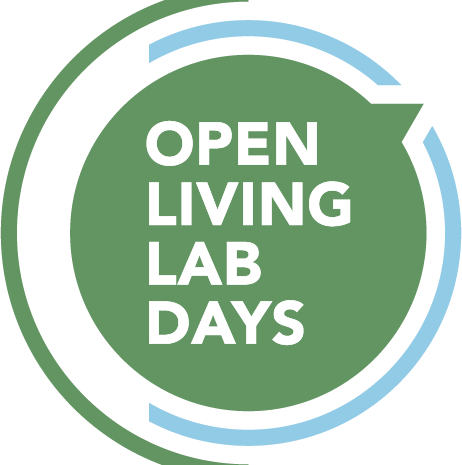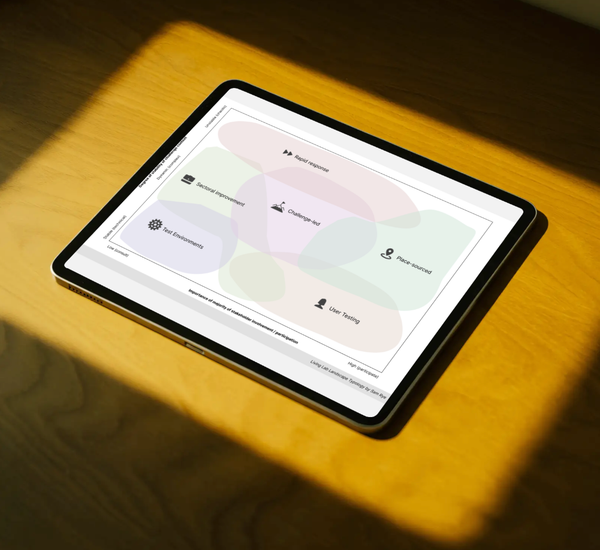OLLD25: The Edges of University Living Labs
In October, I was fortunate enough to join forces with leading lights in the University Living Labs space at the Open Living Lab Days 2025 conference in Andorra.
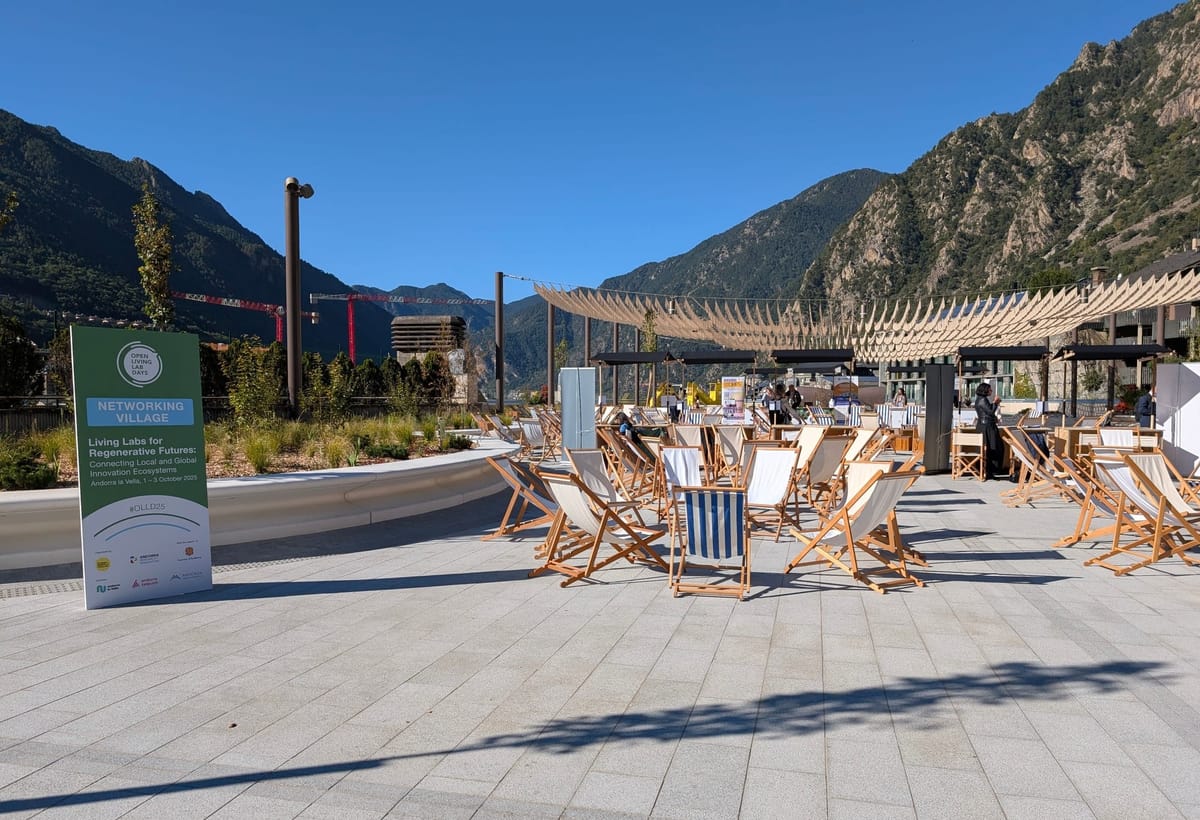
I had three lines of enquiry heading in, and this post represents "Enquiry 2: How might we advance University Living Labs to accelerate challenge-led approaches?"
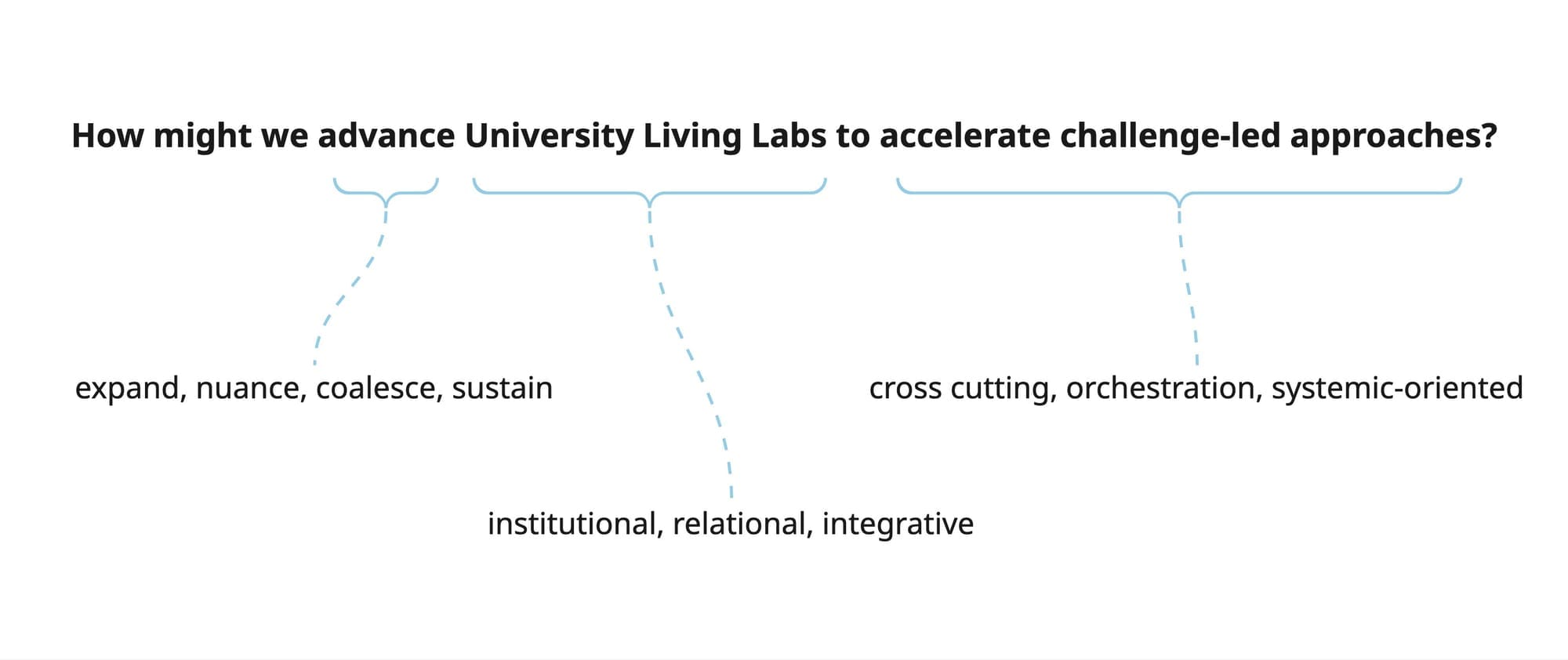
Helena Fitzgerald (TU Dublin) & I had been talking since OLLD 2023 about our journies building University Living Labs (ULL), so we proposed a session exploring how other practitioners were also experiencing building these types of relational infrastructure inside (and/or outside) institutions.
The Edges of University Living Labs session was born...
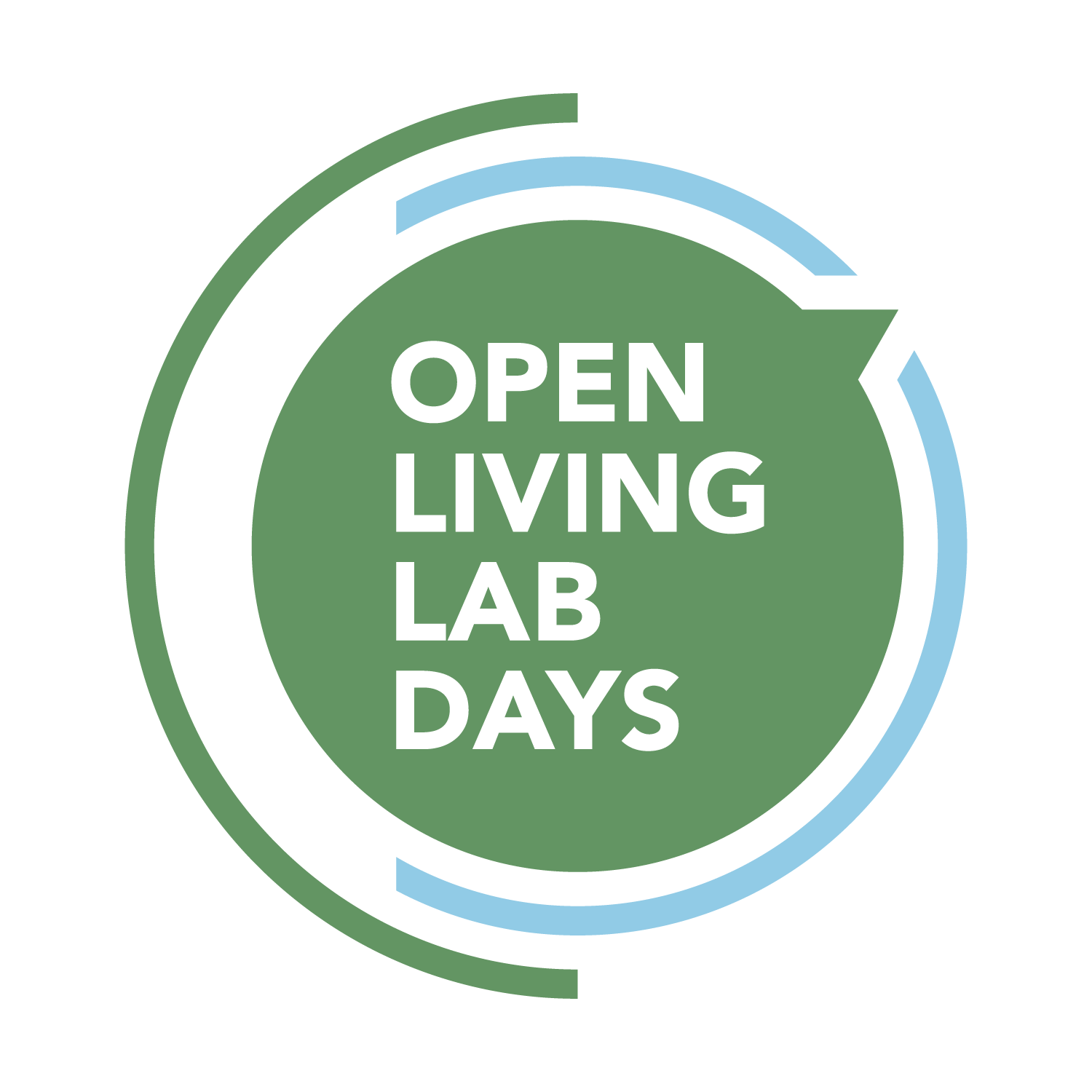
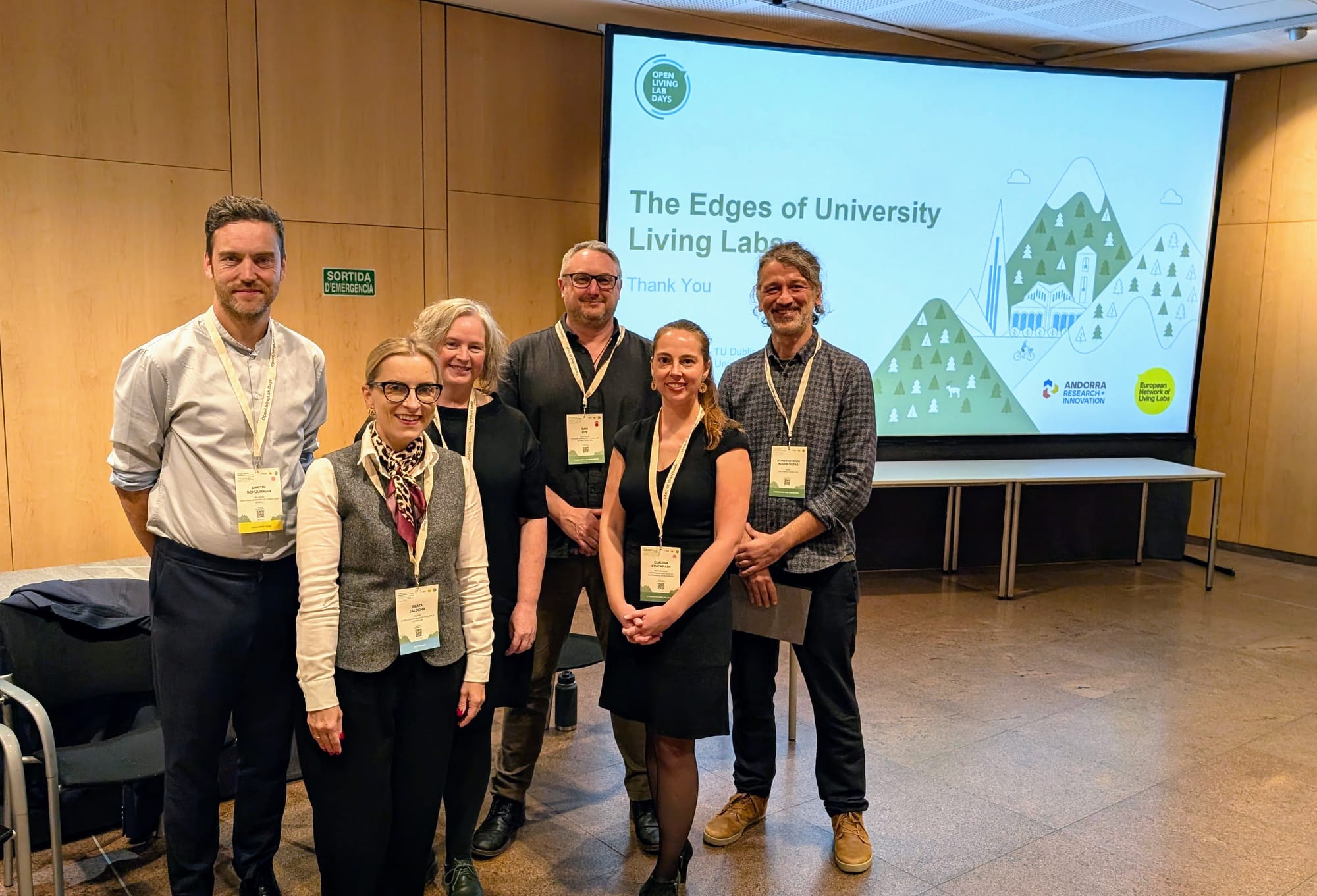
Our session was made up of, from left to right:
- Dimitri Schuurman, imec-MICT-Ghent University & ENoLL
- Beata Jałocha, Jagiellonian University
- Helena Fitzgerald, TU Dublin
- Sam Rye, Monash University
- Claudia Stuckrath, Utrecht University
- Konstantinos Kourkoutas, Universitat Autònoma de Barcelona
You can see the slide presentation here:
Themes
Several themes emerged in the panel discussion and across the slido input:
- Interface & Orchestrator role - given the complex nature of universities being decentralised clusters of multiple organisations (central portfolios, faculties, centres, institutes and more) and operating as place-based entities (campuses, long term partnerships, and often multi-site) they can be seen as innovation ecosystems connected to other innovation ecosystems - partners, local residents, research partnerships, alumni and more. All of this points to the vital role of ULL as interfaces, coordinators and orchestrators of activity to connect the dots, incubate initiatives, and ensure cross-pollination of relationships, ideas, and good practice. [1]
- Spatial aspects - universities often have a wide range of spaces - educational settings, lecture theatres, maker spaces, co-location with partners, studios, residences, scientific labs, test beds, and more. Many universities are also on the edges of towns, or central in regions, and often have multiple locations for different purposes. Given innovation lives in the ecotones (the edges or coming together points), not necessarily in the centre, considering ULL as working ecotones may help us understand their unique role in creating permeable and porous spaces for connection and collaboration. [2] [3]
- Value & Evaluation - ULL are not a simple thing to evaluate, given their plural and emergent value creation across process, innovation initiatives, and ripple impacts through ecosystems - internal and external. Indeed they're designed to act in this manner as an orientation to multisolving for urgent complex challenges and operating effectively in the transient environment of higher education. This doesn't mean that value creation shouldn't be recognised and impact evaluation shouldn't be performed - the opposite is true. Instead - practice is moving towards developing a coherent impact framework which can look at enduring effectiveness and both attributive and contributive impact within innovation ecosystems, student lives, local regions and more. [4] [5] [6] [7]
Next Steps
I'm delighted to say that our core proposal - that we needed a working group supported by ENoLL - to keep advancing understanding and connecting across geographies, is in place ably led by Claudia Stuckrath. We had our first meeting in November 2025.
Meanwhile at Monash, we've launched our 'Advancing University Living Labs' report, are establishing a research cluster focused on living lab practice, and are moving forwards with finding a longer term home for the University Living Lab we're building. Watch this space.
References
[1] Fauth, J., De Moortel, K., & Schuurman, D. (2024). Living labs as orchestrators in the regional innovation ecosystem: a conceptual framework. Journal of Responsible Innovation, 11(1), 2414505.
[2] Ghazinoory, S., Phillips, F., Afshari-Mofrad, M., & Bigdelou, N. (2021). Innovation lives in ecotones, not ecosystems. Journal of Business Research, 135, 572-580.
[3] Pendleton-Jullian, A. (2019). Education and innovation ecotones. In Ecologies for learning and practice (pp. 112-128). Routledge.
[4] Sawin, E. (2024). Multisolving: Creating systems change in a fractured world. Island Press.
[5] Vervoort, K., Trousse, B., Desole, M., Bamidis, P., Konstantinidis, E., Santonen, T., ... & Bertolin, J. (2022). Harmonizing the evaluation of living labs: A standardized evaluation framework. In Proceedings of the XXXIII ISPIM Innovation Conference. Lappeenrannan teknillinen yliopisto.
[6] Rye, S., Donaldson L., French, M. A., Jasieniak, J., and Raven, R. (2025) Advancing University Living Labs: Relational Infrastructure for Transformative Impact. Monash University; Melbourne, Australia.
[7] Van Geenhuizen, M. (2018). A framework for the evaluation of living labs as boundary spanners in innovation. Environment and Planning C: Politics and Space, 36(7), 1280-1298.


